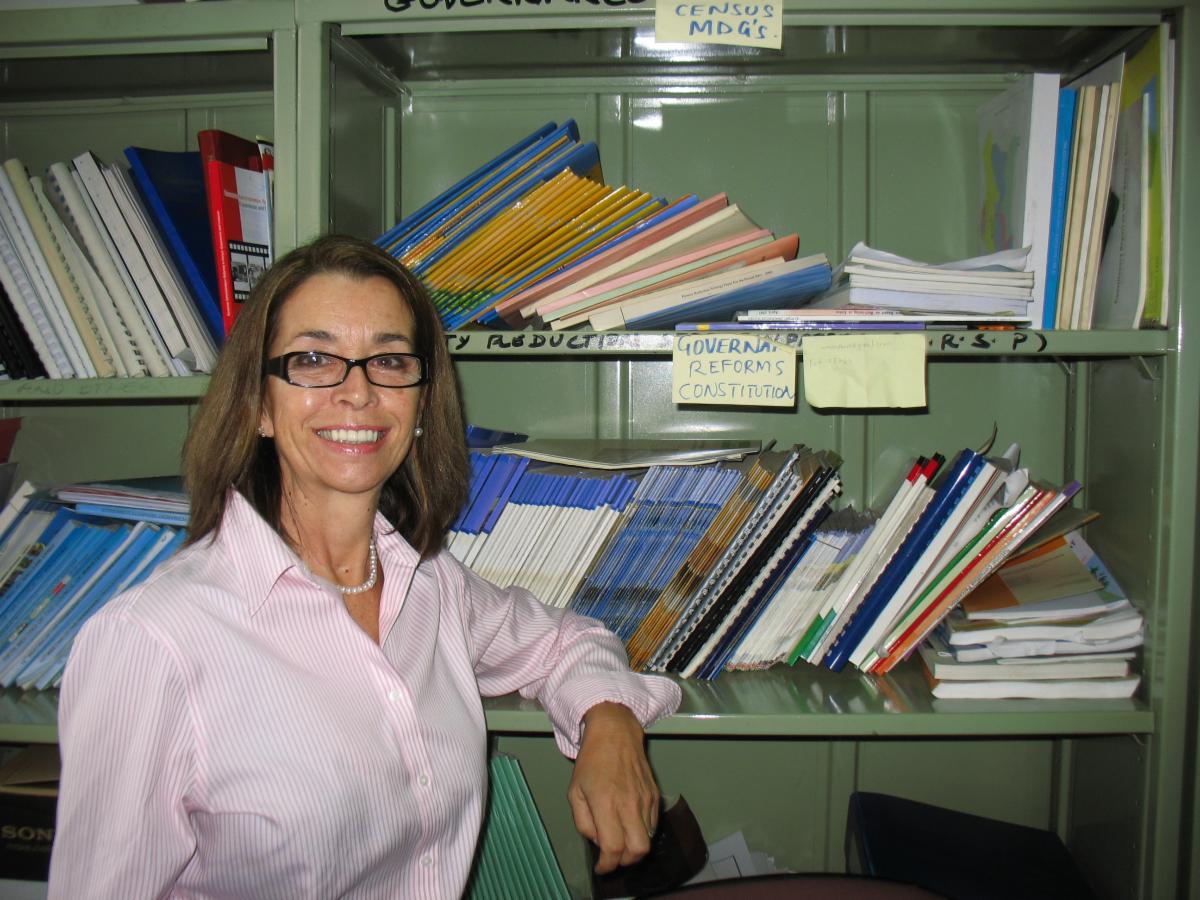#FSVC30thAnniversary: Interview with Volunteer Expert Julia Mold

Julia Mold during an FSVC project. Nairobi, Kenya, 2011
Could you please introduce yourself?
My name is Julia Mold and I am currently a Senior Research Control Officer for Wells Fargo Bank in the Corporate and Investment Banking Division’s Financial Institutions Group. My career began at the New York Stock Exchange as a capital markets regulator. Since then, I have worked with global financial institutions as a consultant and a practitioner of financial crime prevention and risk management efforts around the world.
When and how did you become an FSVC volunteer expert?
My first FSVC project took place in Jakarta, Indonesia, in 2006. I spoke about AML/CFT at a large industry conference prior to a FATF onsite visit. Since then, I feel so honored to have been asked to volunteer on 19 additional FSVC projects in emerging and transitioning economies. With three other FSVC volunteers, I had a unique opportunity to co-author a report on “Financial Inclusion and Anti-Money Laundering in Kenya” (Gates Foundation and FSVC, 2012).
What draws you to volunteering with FSVC?
For many years, I have felt a growing responsibility to share what I have learned through my own financial crime prevention and risk management roles with other financial sector participants who need practical approaches to use in their respective institutions and cannot find these resources locally.
I am very fortunate that Wells Fargo strongly encourages community involvement. An interesting fact is that, were it not for volunteering on an FSVC project in Malawi, I would not have met my former manager who hired me at Wells Fargo!
Could you please tell us about your favorite FSVC project?
Frankly, each project has offered special features for a wide variety of reasons. Some of my favorite projects were in Russia and Tunisia. In Russia, over the course of five years, I actually observed the AML/CFT knowledge of participants increasing through the types of questions posed and advanced level of discussions. In Tunisia, during the first day of training for regulatory examiners and bankers, I learned from a participant that the first regulatory AML examination of banks was taking place the following Friday. This gave an added urgency to our efforts.
Why do you think that FSVC’s mission is important?
FSVC projects are distinguished by the collaborative interaction between volunteers and participants. Volunteers share their subject matter knowledge with peer practitioners in each country in a manner that fosters knowledge exchange and builds practical approaches. The importance of direct delivery to the institutions and professionals who will use the knowledge and practical tools cannot be overstated.